
The first duo collaboration between pianist Joel Futterman and saxophonist Chad Fowler, performing on stritch--a straight alto saxophone--in a nine-part studio journey drawing on a history of jazz styles, from blues to free, in lyrical and actively introspective dialogs, building to an intense conclusion of rapidly cathartic interaction and a final, pensive release.
In Stock
Quantity in Basket: None
Log In to use our Wish List
Shipping Weight: 3.00 units
EU & UK Customers:
Discogs.com can handle your VAT payments
So please order through Discogs
Sample The Album:
Joel Futterman-piano
Chad Fowler-stritch
Click an artist name above to see in-stock items for that artist.
UPC: 195269145415
Label: Mahakala Music
Catalog ID: MAHA-025
Squidco Product Code: 31693
Format: CD
Condition: New
Released: 2022
Country: USA
Packaging: Digipack
Recorded in Virginia and Arkansas, in May, 2021.
"Those aware, open to possibilities and to whatever attendant possibilities ensue, are cognizant of moments that bespeak contexts so myriad that implication only becomes apparent with the luxury of reminiscence. Take a moment and listen as four notes issue from the middle register of Joel Futterman's piano as this first collaborative piece with Chad Fowler concludes, somewhere between proclamation and invitation; it's all Fowler needs! Picking up the narrative thread, the Protean tone emanating from his alto, rife with reiterated multiphonic suggestion, he creates an open space around which Futterman weaves intricate lines, scintillating harmony and something in-between. It's an instant indicative of deep listening, instantaneous reacting and the parallel creative courses emerging from those coexistent modalities. The opening miniature indicates what lies ahead.
Though Mahakala has released Futterman's recent Vision Festival appearance, in tribute to the late Alvin Fielder, this is Futterman and Fowler's first collaborative musical statement. Beyond the requisite depth, fire and introspection of shared inspiration, it is also graced with flashes of sardonic humor, as in the second piece, from Fowler's rollicking "Tea for Two" opening to Futterman's immediately ensuing descending sweep, all swinging into a contrapuntal blues as far down in the gutbucket as it is fractiously funny. Contrast that wittiness with the bluesy balladry of the sixth piece to hear the duo's range and versatility as they ride the chromatic waves, each leaving room for the other to bend and sway a solo or two into existence, and dig Futterman's double- time as Fowler responds with growling bebop alacrity. The fourth piece is redolent of late 1960s or early 1970s spirituality, channeling the gospel-infused freedom consciousness so important to both musicians as they've traveled their respective paths. The track arcs with a winning mixture of intensity, precision and grace, as when Fowler and Futterman complete and overlap phrases beginning at 3:37, where the pianist provides his now-ubiquitous drone. The eighth piece inhabits a similarly meditative space, awash in the dynamically disparate phrases traversing the shared territories conjoining history and influence.
Nothing prepares for the radical sound worlds evoked in the final ten-minute tour de force, the duo stretching in all directions, initiated by an incisive piano-innards strum from Futterman. Closest in spirit to the third piece, this concluding venture raises the stakes, and Fowler enhances the proceedings with his melodic multiphonics. No mere exercise in tonal complexity, he actually creates serialized sonorities, weaving webs of concentric melody to complement Futterman's thick or dotted lines and multihued densities. The two unify their work with a vocabulary as tactile as audible, palpable with shape and rhythm supporting each motive in context. Futterman's driving repetitions at 4:55 push Fowler to and beyond the limits of his instrument's range, just as their combined percussives guide the track's inaugural moments. Most moving of all, after the intensity and uplift, is the concluding minute, where the instrumental integration is so complete as to obscure identity. Temporal motion thus thwarted, we are truly in the sacred space, the most timeless of moments, the creator's abode and the listener's boon.- Marc Medwin
Artist Biographies
• Show Bio for Joel Futterman "Joel Futterman, Piano and Indian Flute Determined to push the limits of the piano to techniques never heard in jazz, Joel began a 25-year regimen of practicing 8-10 hours a day. During this period, he developed a three-hand technique based on completely autonomous playing between the hands. With more than 70 recordings, he is considered one of the most innovative yet enigmatic new music pianists. Known for his spirited, highly imaginative, and innovative piano technique, Joel Futterman is an internationally recognized veteran pioneer into the frontiers of spontaneous, improvised music. He is considered one of the foremost inventive and adventurous artists shaping the creative, progressive music scene today. Futterman continuously pushes the limits of the piano as he explores new musical horizons. He has performed across North America and Europe including at such noted music festivals as the Tampere Jazz Festival in Finland, the Vision Festival in New York, the New Orleans Jazz & Heritage Festival, and the Guelph Festival in Canada. He has performed with such notable jazz innovators as Jimmy Lyons, Rahsaan Roland Kirk, Paul Murphy, Joseph Jarman, Richard Davis, William Parker, Alvin Fielder, and Hal Russell; as well as Edward 'Kidd' Jordan, with whom he has had a highly productive association. For many years, Futterman has also played the Indian Wooden Flute. Joel Futterman was born in Chicago, IL. He grew up and lived in Chicago until 1972. Joel had piano lessons from about age 9-11, then continued playing on his own, eventually studying theory and harmony with Alan Swain. Joel met Clarence (Gene) Shaw when he was 18 and studied with Clarence for two years. Clarence was an important influence at the time. One night Clarence invited Joel to his home for a party. He introduced Joel to Charles Mingus. Joel recalls that Mingus gripped his hand firmly and stared up at the ceiling. Joel attended University of Illinois in Chicago obtaining a (B.S.). Herman Finer, professor of political science, was a profound influence and encouraged Joel to pursue his creative endeavors. While Joel was in college, his mother passed away and he isolated himself and began practicing 12 to 16 hours a day. Practicing was the only comfort for him at this time. Joel attended Northeastern University in Chicago and worked on an MS in Education. He was nine hours short of receiving the degree when he decided to leave Chicago. Joel did receive an MS in Education with an endorsement in Reading at Old Dominion University in 1975. In 1972, Joel moved to Virginia, where he resides today, in a personal quest to develop his creative voice. His first album, CAFETERIA, was released in 1980 to considerable acclaim due to its originality. Since then, his recordings have included a number of jazz legends, such as Jimmy Lyons, Richard Davis, Hal Russell, William Parker and others. In 1994, photographer Michael Wilderman introduced Joel to Edward 'Kidd' Jordan, and since then Joel has enjoyed many rewarding musical collaborations with Kidd and drummer Alvin Fielder. Also, Joel Futterman has had a deep association with artist Ike Levin, founder of the Charles Lester Label." ^ Hide Bio for Joel Futterman • Show Bio for Chad Fowler "I'm Chad Fowler. I write books, write and play music, write software, lead organizations (currently for Microsoft, in Berlin), invest in startups, speak at conferences, teach, learn, organize conferences, etc. I started and co-organized a couple of Ruby-related conferences including The International Ruby Conference and RailsConf." ^ Hide Bio for Chad Fowler
7/9/2025
Have a better biography or biography source? Please Contact Us so that we can update this biography.
7/9/2025
Have a better biography or biography source? Please Contact Us so that we can update this biography.
Track Listing:
1. Part One 2:25
2. Part Two 4:01
3. Part Three 5:31
4. Part Four 4:27
5. Part Five 13:10
6. Part Six 6:03
7. Part Seven 4:32
8. Part Eight 7:22
9. Part Nine 10:16
Improvised Music
Jazz
Free Improvisation
Piano & Keyboards
Recordings by or featuring Reed & Wind Players
Duo Recordings
New in Improvised Music
Search for other titles on the label:
Mahakala Music.


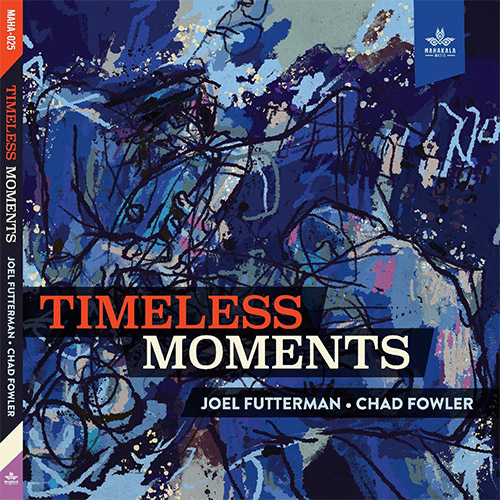
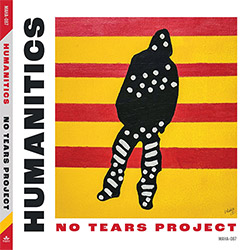
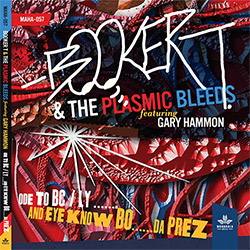


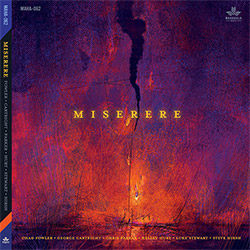
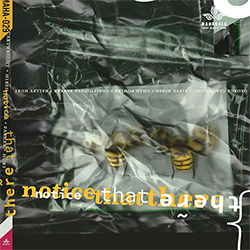
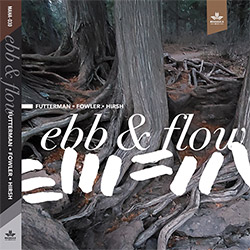
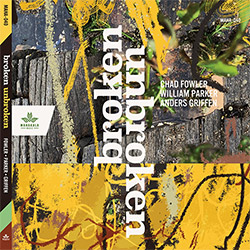
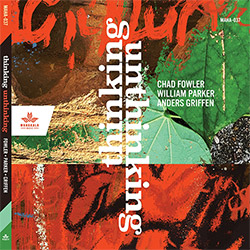
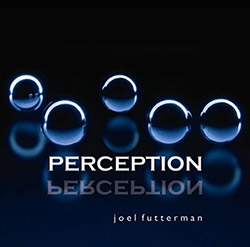
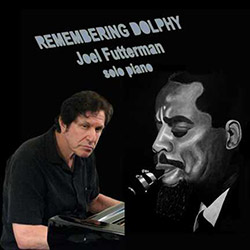
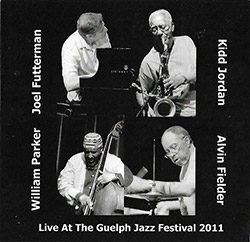
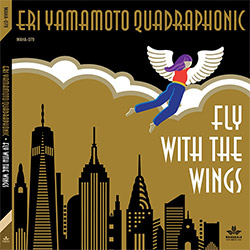

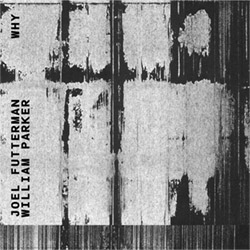
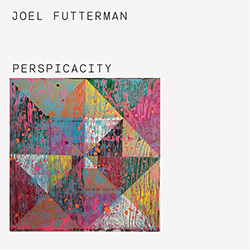

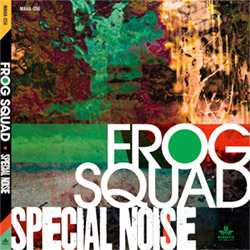
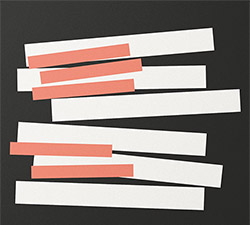
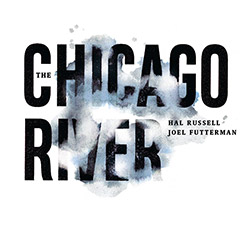
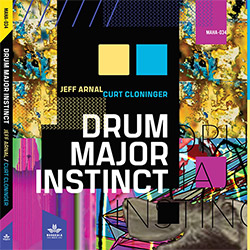

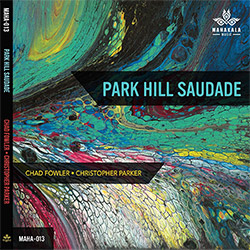


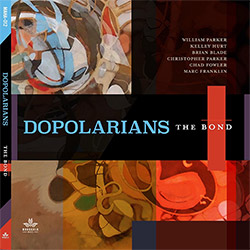




![BlueRing Improvisers: Materia [2 CDs]](https://www.teuthida.com/productImages/misc4/36513.jpg)








![Wheelhouse (Rempis / Adasiewicz / McBride): House And Home [VINYL]](https://www.teuthida.com/productImages/misc4/36462.jpg)
![+DOG+: The Light Of Our Lives [2 CDs]](https://www.teuthida.com/productImages/misc4/36009.jpg)


![Parker, Evan / Jean-Marc Foussat: Insolence [VINYL]](https://www.teuthida.com/productImages/misc4/36398.jpg)










![Deupree, Jerome / Sylvie Courvoisier / Lester St. Louis / Joe Morris: Canyon [2 CDs]](https://www.teuthida.com/productImages/misc4/36404.jpg)



![Eventless Plot | Haarvol: The Subliminal Paths [CASSETTE + DOWNLOAD]](https://www.teuthida.com/productImages/misc4/36232.jpg)










![Eventless Plot | Francesco Covarino: Methexis [CASSETTE + DOWNLOAD]](https://www.teuthida.com/productImages/misc4/36231.jpg)



![Das B (Mazen Kerbaj / Mike Majkowski / Magda Mayas / Tony Buck): Love [VINYL]](https://www.teuthida.com/productImages/misc4/36329.jpg)


![Eternities: Rides Again [CASSETTE]](https://www.teuthida.com/productImages/misc4/36247.jpg)
![Lopez, Francisco: Untitled (2021-2022) [2 CDs]](https://www.teuthida.com/productImages/misc4/36438.jpg)






![Money : Money 2 [2 CDs]](https://www.teuthida.com/productImages/misc4/35894.jpg)




![Klinga, Erik: Elusive Shimmer [VINYL]](https://www.teuthida.com/productImages/misc4/36258.jpg)
![CHANGES TO blind (Phil Zampino): Volume 9 - I Wave on a Fine Vile Mist [CD + DOWNLOAD]](https://www.teuthida.com/productImages/misc4/36061.jpg)

![Wallmart / Rubbish: Asset Protection [split CD]](https://www.teuthida.com/productImages/misc4/35900.jpg)


![+Dog+: The Family Music Book Vol. 5 [2 CDs]](https://www.teuthida.com/productImages/misc4/35897.jpg)
![Kuvveti, Deli : Kuslar Soyledi [CASSETTE w/ DOWNLOAD]](https://www.teuthida.com/productImages/misc4/36107.jpg)

![Brown, Dan / Dan Reynolds: Live At The Grange Hall [unauthorized][CASSETTE]](https://www.teuthida.com/productImages/misc4/36245.jpg)








![Palestine, Charlemagne / Seppe Gebruers: Beyondddddd The Notessssss [VINYL]](https://www.teuthida.com/productImages/misc4/36206.jpg)
![Palestine, Charlemagne / Seppe Gebruers: Beyondddddd The Notessssss [NEON GREEN VINYL]](https://www.teuthida.com/productImages/misc4/36207.jpg)

![Laubrock, Ingrid: Purposing The Air [2 CDs]](https://www.teuthida.com/productImages/misc4/35639.jpg)

![Yoko, Ono / The Great Learning Orchestra: Selected Recordings From Grapefruit [2 CDs]](https://www.teuthida.com/productImages/misc4/35841.jpg)









![Zorn, John / JACK Quartet: The Complete String Quartets [2 CDs]](https://www.teuthida.com/productImages/misc4/35609.jpg)

![Lonsdale, Eden: Dawnings [2 CDs]](https://www.teuthida.com/productImages/misc4/35480.jpg)



![Sorry For Laughing (G. Whitlow / M. Bates / Dave-Id / E. Ka-Spel): Rain Flowers [2 CDS]](https://www.teuthida.com/productImages/misc4/35985.jpg)

![Rolando, Tommaso / Andy Moor : Biscotti [CASSETTE w/ DOWNLOADS]](https://www.teuthida.com/productImages/misc4/36106.jpg)


![Electric Bird Noise / Derek Roddy: 8-10-22 [CD EP]](https://www.teuthida.com/productImages/misc4/35970.jpg)








![Elephant9 : Mythical River [VINYL]](https://www.teuthida.com/productImages/misc4/34624.jpg)



![Elephant9 with Terje Rypdal: Catching Fire [VINYL 2 LPs]](https://www.teuthida.com/productImages/misc4/35355.jpg)
![Deerlady (Obomsawin, Mali / Magdalena Abrego): Greatest Hits [VINYL]](https://www.teuthida.com/productImages/misc4/34876.jpg)







![Surplus 1980: Illusion of Consistency [CD]](https://www.teuthida.com/productImages/misc4/35069.jpg)
![Staiano, Moe: Away Towards the Light [VINYL + DOWNLOAD]](https://www.teuthida.com/productImages/misc4/35037.jpg)
![Coley, Byron: Dating Tips for Touring Bands [VINYL]](https://www.teuthida.com/productImages/misc4/17906.jpg)

![Lost Kisses: My Life is Sad & Funny [DVD]](https://www.teuthida.com/productImages/misc4/lostKissesDVD.jpg)